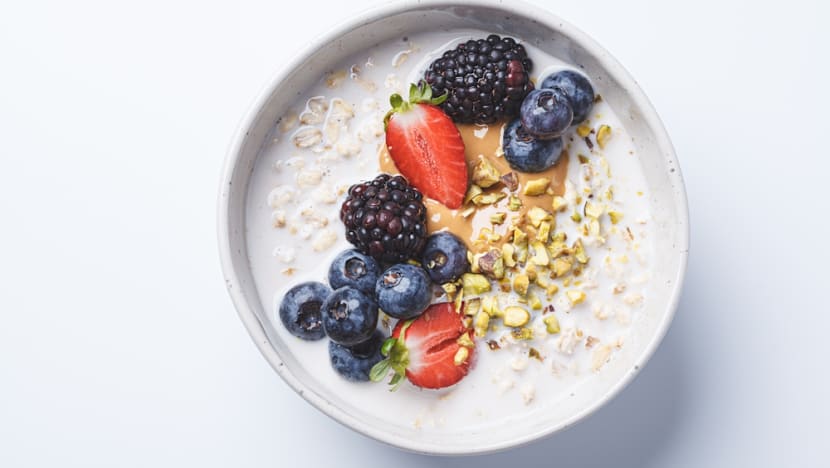Health
Whole Grains: A Delicious Step Towards Better Heart Health

A growing body of research underscores the importance of diet in reducing cardiovascular disease risk, particularly in Singapore, where over one in five individuals now has at least one risk factor. Conditions like obesity, diabetes, and high cholesterol are contributing to a troubling statistic: cardiovascular disease was responsible for more than 30 percent of deaths in Singapore last year. Projections indicate that by 2050, the rate of heart attacks could soar from 480 to 1,400 cases per 100,000 people.
How Whole Grains Can Lower Cholesterol
Eating a healthier breakfast is one of the simplest ways to improve overall health. Medical professionals recommend diets low in fat, sugar, and salt, while emphasizing the benefits of high-fiber foods such as fruits, vegetables, legumes, and whole grains. According to the Health Promotion Board’s My Healthy Plate guide, a balanced meal should consist of half a plate of fruits and vegetables, a quarter plate of lean protein, and a quarter plate of whole grains.
Dr. Kit Phanvijhitsiri, R&D life sciences manager at PepsiCo Services Asia, highlights that food-based interventions are more sustainable than medication due to their enjoyable nature and minimal side effects. “Everyone at home can be included in the journey towards good health and healthier blood cholesterol levels,” he stated.
Cholesterol, a waxy substance produced by the liver, is essential for bodily functions, but excessive amounts of low-density lipoprotein (LDL) can lead to serious health issues, including heart attacks and strokes. Whole grains, particularly oats, contain beta glucan, a soluble fiber that can help lower LDL cholesterol by binding to bile acids that contain LDL, facilitating their removal from the body.
Nourishing with Oats
In addition to reducing bad cholesterol, soluble fiber from whole grains helps regulate blood sugar levels. This is particularly important for individuals managing diabetes, as it slows sugar release into the bloodstream, promoting sustained energy. Dr. Phanvijhitsiri recommends consuming 75 grams of oatmeal daily, which provides approximately 3 grams of beta glucan.
“Oats are easier to prepare than barley, which takes longer to cook and is less available in a variety of forms,” he noted. Oats are also rich in antioxidants, which can help reduce inflammation and protect against tissue damage in the arteries.
The varieties of Quaker Oats available cater to different cooking preferences: whole rolled oats, which cook in five minutes; quick cook oatmeal, ready in two minutes; and instant oatmeal, which requires only hot water. These options make oats a convenient breakfast choice for busy lifestyles.
There are numerous ways to prepare oats to suit various tastes. Whole rolled oats can be soaked overnight in milk or yogurt for a quick breakfast. Adding fresh fruit, nut butter, or a sprinkle of cinnamon enhances flavor without added sugar. Toppings like chopped nuts or seeds can boost both texture and nutrition.
“Oats can be enjoyed at any time, on any occasion,” Dr. Phanvijhitsiri remarked. “Our website offers creative and delicious oat-based recipes for every meal and craving.”
Alongside regular exercise, effective stress management, and maintaining a healthy weight, a balanced diet is essential for cardiovascular health. Starting the day with a nourishing bowl of oats can set the tone for healthier food choices throughout the day. Choosing Quaker Oats may just be one of the best steps towards a heart-healthy lifestyle.
-

 World5 months ago
World5 months agoSouth Korea’s Foreign Minister Cho Hyun to Visit China This Week
-

 Business5 months ago
Business5 months agoStarling Bank Plans Secondary Share Sale, Targeting $5.4 Billion Valuation
-

 Top Stories5 months ago
Top Stories5 months agoMunsang College Celebrates 100 Years with Grand Ceremony
-

 World5 months ago
World5 months agoPAS Aims to Expand Parliamentary Influence in Upcoming Election
-

 Business7 months ago
Business7 months agoKenvue Dismisses CEO Thibaut Mongon as Strategic Review Advances
-

 Lifestyle6 months ago
Lifestyle6 months agoHumanism Camp Engages 250 Youths in Summer Fest 2025
-

 Sports6 months ago
Sports6 months agoDe Minaur Triumphs at Washington Open After Thrilling Comeback
-

 Sports7 months ago
Sports7 months agoTupou and Daugunu Join First Nations Squad for Lions Clash
-

 Top Stories7 months ago
Top Stories7 months agoColombian Senator Miguel Uribe Shows Signs of Recovery After Attack
-

 World7 months ago
World7 months agoASEAN Gears Up for Historic Joint Meeting of Foreign and Economic Ministers
-

 Health6 months ago
Health6 months agoNew Study Challenges Assumptions About Aging and Inflammation
-

 Business7 months ago
Business7 months agoOil Prices Surge Following New EU Sanctions on Russia









